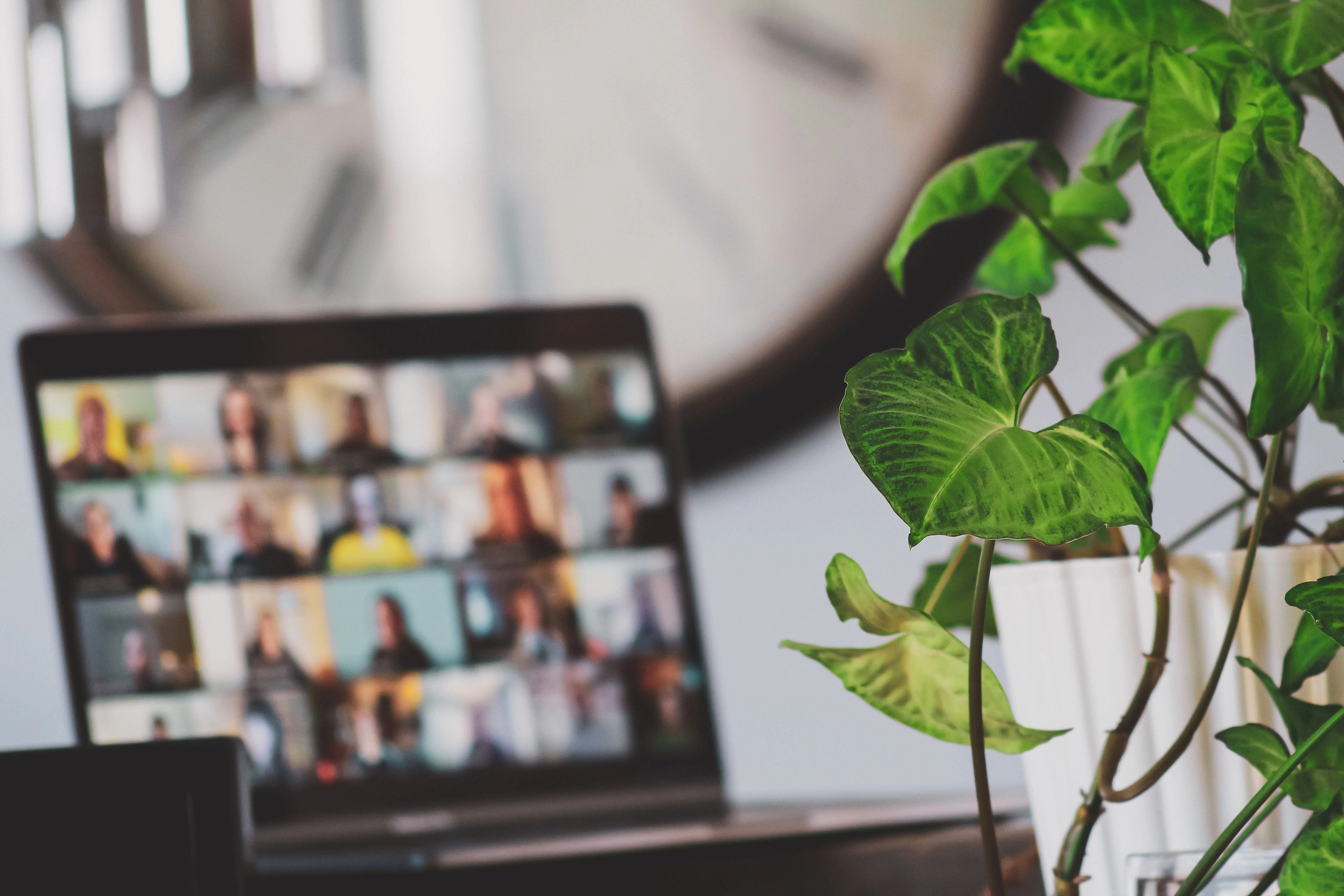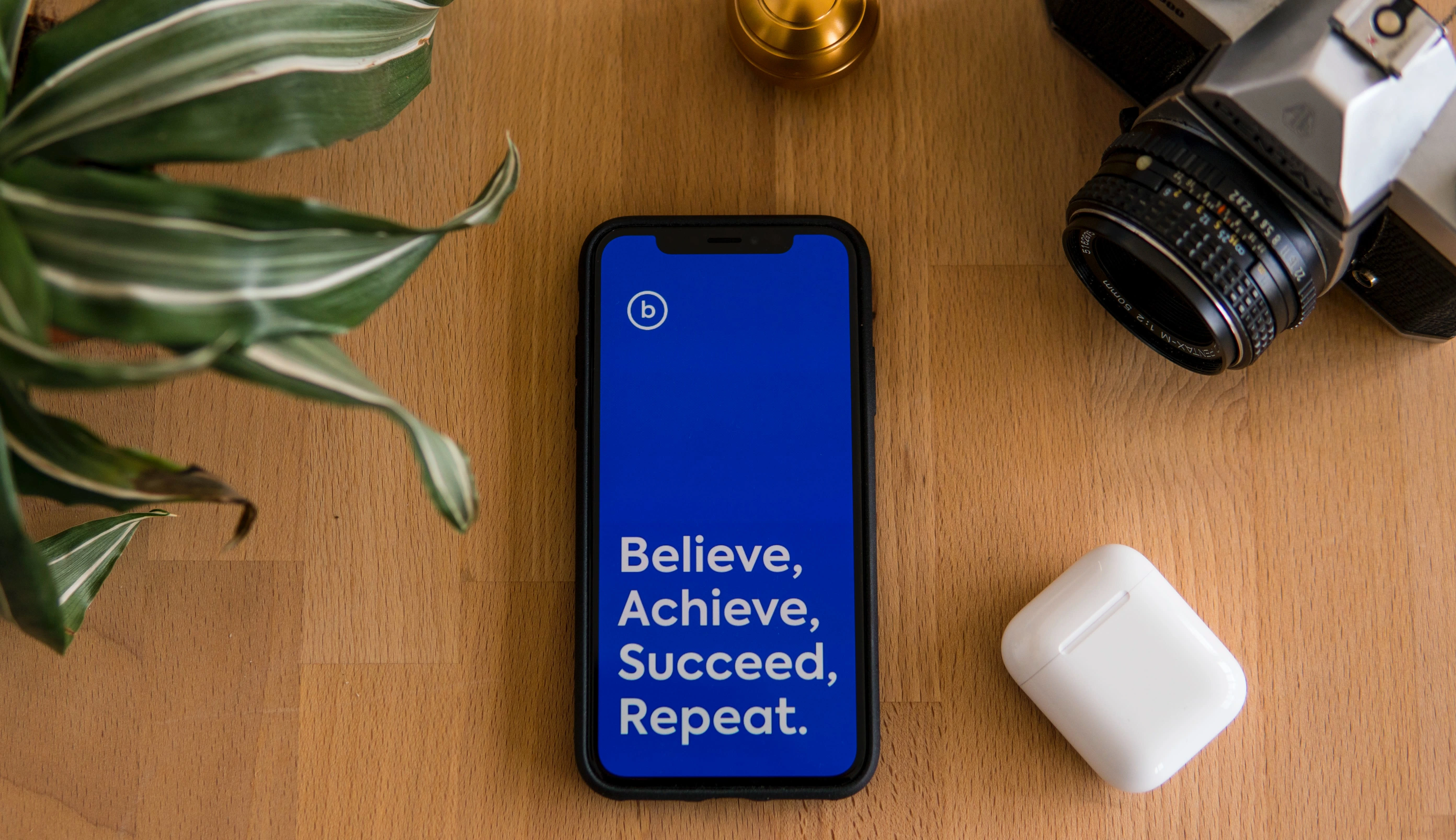Personal Development / Self-Improvement Niche
Time Management Hacks That Will Blow Your Mind and Boost Your Productivity

In today's fast-paced world, time management and goal-setting have become essential skills for success. Many individuals struggle with procrastination, which can hinder productivity and prevent the achievement of desired goals. This article aims to provide valuable insights and effective strategies to transform procrastination into productivity through efficient time management and goal-setting techniques.
Understanding Procrastination
Definition of procrastination
Procrastination refers to the act of delaying or postponing tasks that require immediate attention, often in favor of more pleasurable or less demanding activities. It is a common behavioral pattern that affects people from various walks of life, leading to increased stress, missed deadlines, and diminished accomplishments.
Causes and consequences of procrastination
Procrastination can stem from various underlying causes, including fear of failure, perfectionism, a lack of motivation, and poor time management skills. It often results in negative consequences, such as increased stress levels, reduced productivity, compromised quality of work, and missed opportunities for personal and professional growth.
The Importance of Time Management
I. Benefits of effective time management
Effective time management is crucial for maximizing productivity, achieving goals, and maintaining a healthy work-life balance. By managing their time efficiently, individuals can experience reduced stress, improved focus, enhanced decision-making abilities, and increased overall satisfaction with their accomplishments.
II. How poor time management leads to procrastination
Poor time management practices, such as failure to prioritize tasks, lack of organization, and underestimating the time required for completion, contribute to the development of procrastination habits. When time is not allocated effectively, individuals may feel overwhelmed, leading them to postpone tasks and engage in unproductive behaviors.
Strategies for Overcoming Procrastination
I. Identify and acknowledge procrastination patterns
Recognizing personal patterns of procrastination is the first step towards overcoming this habit. By identifying specific triggers and understanding the reasons behind procrastination, individuals can develop strategies to counteract it effectively.
II. Break tasks into smaller, manageable parts
Large tasks can often be overwhelming and lead to procrastination. Breaking them down into smaller, more manageable parts allows for a sense of progress and accomplishment, making the task less daunting and easier to start.
III. Set specific and realistic goals
Setting clear and realistic goals provides individuals with a sense of direction and purpose. By defining specific objectives and establishing achievable timelines, individuals can stay focused, motivated, and less likely to procrastinate.
III. Utilize time-blocking and prioritization techniques
Time-blocking involves allocating specific time slots for different tasks or activities. By planning and scheduling activities in advance, individuals can prioritize important tasks, avoid multitasking, and dedicate uninterrupted time to complete specific assignments.

Enhancing Productivity through Goal-Setting
I. Importance of setting goals
Setting goals provides individuals with a clear vision and roadmap for success. Goals serve as a source of motivation, guide decision-making, and allow individuals to measure progress and track achievements effectively.
II. SMART goal-setting framework
The SMART goal-setting framework is a widely recognized approach that emphasizes setting goals that are Specific, Measurable, Achievable, Relevant, and Time-bound. By following this framework, individuals can create goals that are well-defined, realistic, and actionable.
III. Tracking progress and celebrating achievements
Regularly tracking progress towards goals helps individuals stay on track and make necessary adjustments. Celebrating milestones and achievements along the way boosts motivation and provides a sense of accomplishment, reinforcing positive habits.
Building Habits for Effective Time Management
I. Create a daily and weekly routine
Establishing a consistent routine allows individuals to prioritize tasks, manage time effectively, and reduce decision fatigue. By incorporating regular habits and allocating time for important activities, individuals can establish a structured approach to managing their time.
II. Eliminate distractions and improve focus
Distractions, such as social media, email notifications, or excessive multitasking, can significantly impede productivity. Minimizing distractions by creating a dedicated workspace, using website blockers, and practicing mindfulness techniques can help improve focus and concentration.
III. Practice self-discipline and self-motivation
Developing self-discipline and self-motivation are essential for combating procrastination and maintaining productivity. Techniques such as setting deadlines, rewarding progress, and cultivating a growth mindset can contribute to fostering these qualities.

Tools and Resources for Time Management
I. Digital calendars and task management apps
Digital calendars and task management apps offer convenient ways to organize and schedule activities, set reminders, and track progress. Popular tools include Google Calendar, Todoist, Trello, and Asana, which provide customizable features to suit individual needs.
II. Pomodoro Technique for time blocking
The Pomodoro Technique is a time-management method that breaks work into intervals, typically 25 minutes long, separated by short breaks. This technique helps maintain focus and prevent burnout by capitalizing on short bursts of productivity.
III. Note-taking and organizing tools
Efficient note-taking and organizing tools, such as Evernote or Microsoft OneNote, can assist in capturing ideas, creating to-do lists, and organizing information. These tools enable individuals to centralize their thoughts and access them easily when needed.
Overcoming Challenges and Maintaining Consistency
I. Dealing with procrastination relapses
Procrastination relapses are common and should be viewed as learning opportunities rather than setbacks. Developing strategies to recognize warning signs, practicing self-compassion, and employing self-accountability techniques can help overcome relapses and maintain consistency.
II. Seeking support and accountability
Seeking support from peers, mentors, or accountability partners can provide valuable motivation and guidance. Collaborating with others, sharing progress, and being held accountable for goals and deadlines can increase commitment and foster consistent productivity.
III. Developing resilience and perseverance
Resilience and perseverance are crucial qualities for effectively managing time and achieving long-term goals. By embracing challenges, learning from failures, and maintaining a positive mindset, individuals can bounce back from setbacks and stay motivated in the face of adversity.
Conclusion
Efficient time management and goal-setting are fundamental skills for transforming procrastination into productivity. By understanding the causes of procrastination, implementing effective strategies, and adopting helpful tools, individuals can overcome this habit and accomplish their goals with increased efficiency and satisfaction.
FAQs
1. How can I overcome procrastination and improve my productivity?
Overcoming procrastination starts with self-awareness and understanding the underlying causes. By identifying your triggers and implementing strategies like breaking tasks into smaller parts, setting specific goals, and utilizing time-blocking techniques, you can develop effective habits that promote productivity.
2. What are some practical time management techniques I can use?
There are several time management techniques you can try, such as prioritizing tasks, creating to-do lists, using a calendar or task management app, and practicing the Pomodoro Technique. Experiment with different approaches to find the ones that work best for you and help you stay focused and organized.
3. How do I set realistic and achievable goals?
Setting realistic goals involves being specific, measurable, and time-bound. Use the SMART goal-setting framework, which stands for Specific, Measurable, Achievable, Relevant, and Time-bound. Break down your goals into smaller milestones, track your progress, and make adjustments as needed.
4. Are there any recommended tools or apps for improving time management?
Yes, there are various tools and apps available to enhance time management. Popular options include digital calendars like Google Calendar, task management apps such as Todoist or Trello, and note-taking tools like Evernote or Microsoft OneNote. Explore these tools to find ones that align with your preferences and help you stay organized.
5. How can I stay motivated and consistent in managing my time and goals?
To stay motivated and consistent, it's important to establish a routine, eliminate distractions, and practice self-discipline. Find ways to reward yourself for progress, seek support from accountability partners, and cultivate a positive mindset. Remember to stay resilient, learn from setbacks, and celebrate your achievements along the way.
The Mindfulness Revolution: Discover the Art of Being Present and Transform Your Life Forever

In today's fast-paced world, finding moments of peace and tranquility can seem like a daunting task. The constant demands and distractions of modern life can leave us feeling overwhelmed and disconnected from ourselves and those around us. However, amidst the chaos, there is a powerful tool that can help us navigate through the noise and find inner peace: mindfulness. In this article, we will explore the art of mastering mindfulness and delve into practical techniques and strategies to cultivate presence and inner peace.
Understanding Presence
Presence is the state of being fully engaged and aware in the present moment. It involves immersing ourselves in the here and now and letting go of worries about the future or regrets about the past. By embracing presence, we can experience a heightened sense of aliveness and a deeper connection with ourselves and the world around us. Research has shown that being present can reduce stress, enhance focus, and improve overall well-being.
The Power of Breath
One of the fundamental pillars of mindfulness is the breath. Our breath serves as an anchor that brings us back to the present moment. By paying attention to our breath, we can cultivate a sense of calm and stillness within. Various breathwork techniques, such as deep belly breathing or mindful breathing, can help us develop a closer relationship with our breath and enhance our mindfulness practice.
Developing Self-Awareness
Self-awareness is a crucial aspect of mindfulness. It involves observing our thoughts, emotions, and physical sensations without judgment. By developing self-awareness, we can gain insight into our patterns of thinking and reacting, which empowers us to make conscious choices rather than being driven by automatic responses. Practices like body scans, meditation, and journaling can aid in developing self-awareness.
Letting Go of Distractions
In a world filled with distractions, cultivating mindfulness requires us to let go of the mental and physical clutter that pulls us away from the present moment. This means acknowledging and releasing thoughts and worries as they arise, gently redirecting our attention back to the present. Techniques like mindful noting and focusing on our senses can help us let go of distractions and cultivate a greater sense of presence.
Embracing Acceptance and Non-Judgment
Central to mindfulness is the practice of acceptance and non-judgment. It involves acknowledging our experiences without labeling them as good or bad, right or wrong. By embracing a non-judgmental attitude, we can cultivate compassion for ourselves and others. This attitude allows us to navigate challenging emotions with kindness and understanding, fostering inner peace and healthier relationships.

Nurturing Inner Peace
Creating an environment that promotes inner peace can greatly support our mindfulness practice. Simple acts such as decluttering our living spaces, creating soothing rituals, and surrounding ourselves with nature can contribute to a more peaceful and harmonious lifestyle. Engaging in activities like yoga, meditation, or listening to calming music can also nurture a sense of inner peace.
Mindful Eating and Movement
Mindfulness can extend beyond formal practice and be incorporated into our daily routines. Mindful eating involves savoring each bite and paying attention to the tastes, textures, and sensations associated with the food we consume. Similarly, practicing movement mindfully, whether through yoga, walking, or any physical activity, allows us to fully engage with our bodies and the present moment.
Mindfulness in Relationships
Mindfulness can enhance our relationships by fostering deeper connections and improving communication. By being fully present with others, we demonstrate genuine interest and empathy. Active listening, non-verbal cues, and mindfulness-based communication techniques can help create a more harmonious and meaningful connection with loved ones, colleagues, and friends.
Overcoming Obstacles in Mindfulness Practice
Like any practice, mindfulness comes with its own challenges. Common roadblocks such as restlessness, self-doubt, or difficulties in maintaining consistency can hinder our progress. However, by recognizing these obstacles and implementing strategies such as self-compassion, setting realistic expectations, and seeking support from a mindfulness community, we can overcome these hurdles and continue on our mindfulness journey.
Integrating Mindfulness into Daily Life
To truly master mindfulness, it's essential to integrate it into various aspects of our lives. Whether it's incorporating mindfulness into our work, relationships, or leisure activities, consciously applying the principles of presence and non-judgment can significantly enhance our overall well-being. By setting aside dedicated time for mindfulness practice and finding ways to infuse it into everyday moments, we can experience the transformative power of mindfulness.
The Benefits of Mindfulness
Research has shown that mindfulness practice can have a profound impact on our physical, mental, and emotional well-being. From reducing stress and anxiety to improving focus and cognitive abilities, the benefits of mindfulness are vast and scientifically supported. By regularly engaging in mindfulness, we can cultivate resilience, enhance self-awareness, and foster a greater sense of inner peace and contentment.

Cultivating Mindfulness with Technology
In today's digital age, technology can be both a blessing and a challenge when it comes to mindfulness. Mindfulness apps, guided meditation recordings, and online resources can provide valuable support and guidance. However, it's crucial to strike a balance and be mindful of excessive screen time or dependence on technology. Being intentional in our use of digital tools can help us harness their benefits without losing touch with the present moment.
Mindfulness Retreats and Workshops
For those seeking immersive experiences to deepen their mindfulness practice, retreats and workshops offer unique opportunities. These gatherings provide a dedicated space and expert guidance for individuals to delve deeper into mindfulness techniques, connect with like-minded individuals, and gain insights from experienced teachers. Researching local retreats and workshops can lead to transformative experiences on the mindfulness journey.
Conclusion
Mastering mindfulness is a lifelong journey that requires dedication, patience, and self-compassion. By cultivating presence, developing self-awareness, letting go of distractions, and embracing acceptance, we can unlock the transformative power of mindfulness in our lives. Through the integration of mindfulness into various aspects of our daily routines, we can experience inner peace, enhanced well-being, and more meaningful connections with ourselves and others.
FAQs
Is mindfulness a religious practice? While mindfulness has roots in various spiritual traditions, it is not inherently religious. It can be practiced by individuals of any faith or no faith, focusing on the present moment and cultivating awareness.
How long does it take to master mindfulness? Mindfulness is a continual practice, and there is no fixed timeline for mastery. The benefits can be experienced from the very beginning, but ongoing practice allows for deeper integration and understanding.
Can mindfulness help with stress and anxiety? Yes, mindfulness has been proven to be effective in reducing stress and anxiety. By cultivating present-moment awareness and non-judgment, mindfulness can help individuals better manage and cope with these challenges.
Can mindfulness improve focus and productivity? Absolutely. Mindfulness practices can enhance focus, attention, and concentration. By training the mind to stay present, individuals often experience increased productivity and improved cognitive abilities.
Can mindfulness be practiced in busy environments? Yes, mindfulness can be practiced anywhere, including in busy environments. While external factors may pose challenges, cultivating mindfulness allows individuals to find moments of calm and presence amidst the busyness of life.
The Ultimate Guide to Growth and Self-Improvement

Welcome to a journey of personal growth and self-improvement! In this article, we will explore the art of unleashing your potential and becoming the best version of yourself. Personal growth is an ongoing process that allows individuals to develop their skills, broaden their perspectives, and achieve their goals. By embracing self-improvement, you can unlock new opportunities, enhance your well-being, and lead a more fulfilling life.
Understanding Personal Growth
At its core, personal growth refers to the continuous development of one's abilities, qualities, and potential. It involves a conscious effort to expand knowledge, acquire new skills, and improve various aspects of life. Personal growth is essential for individuals seeking self-fulfillment and success in both personal and professional realms.
Numerous factors influence personal growth, and they vary from person to person. However, some common elements contribute to personal growth:
1. Self-awareness: Understanding oneself, including strengths, weaknesses, values, and beliefs, is fundamental to personal growth. By gaining self-awareness, you can identify areas for improvement and align your actions with your values.
2. Goal setting: Setting clear and meaningful goals provides direction and purpose in personal growth. Well-defined goals help you focus your efforts and track progress along the journey.
3. Continuous learning: Personal growth thrives on continuous learning and acquiring new knowledge and skills. Embracing a lifelong learning mindset allows for personal and professional development.
4. Self-reflection: Regular self-reflection provides an opportunity to evaluate experiences, behaviors, and choices. It helps identify patterns, learn from mistakes, and make necessary adjustments for personal growth.
5. Overcoming challenges: Personal growth often involves stepping out of comfort zones and facing challenges. Embracing and overcoming obstacles promotes resilience, adaptability, and personal development.

Embracing Self-Improvement
To embark on a journey of personal growth, it's crucial to recognize the need for self-improvement. Acknowledging that there is always room for growth is the first step towards positive change. By adopting a growth mindset, you embrace the belief that abilities and intelligence can be developed through dedication and hard work.
Setting meaningful goals is another vital aspect of self-improvement. Goals act as a roadmap, guiding your actions and providing a sense of purpose. When setting goals, ensure they align with your values, resonate with your aspirations, and challenge you to grow.
Cultivating positive habits and routines can also support self-improvement. Consistent and deliberate actions towards personal growth can lead to transformative change over time. By incorporating positive habits into your daily life, such as exercising regularly, practicing gratitude, or dedicating time for self-reflection, you create an environment conducive to growth.
Strategies for Personal Growth
1 .Enhancing self-awareness: Self-awareness is a foundation for personal growth. Engage in self-reflection exercises, such as asking yourself thought-provoking questions or keeping a journal. These practices deepen your understanding of your thoughts, emotions, and behaviors.
2. Building emotional intelligence: Emotional intelligence is the ability to recognize, understand, and manage emotions effectively. Develop emotional intelligence by becoming more aware of your own emotions, improving your empathy towards others, and honing your communication skills.
3. Expanding knowledge and skills: Lifelong learning is a powerful tool for personal growth. Engage in continuous education by reading books, articles, and taking courses or attending workshops relevant to your interests and goals.
4. Overcoming obstacles and embracing challenges: Personal growth often involves overcoming obstacles and stepping out of your comfort zone. Develop resilience by viewing failures as opportunities for learning and growth. Embrace challenges and approach them with a positive mindset.
Nurturing Personal Well-being
Personal growth is closely intertwined with personal well-being. To optimize your potential, it's essential to prioritize your physical, mental, and emotional health.
Taking care of your physical health is the foundation for overall well-being. Regular exercise, maintaining a balanced diet, getting enough sleep, and managing stress contribute to your physical vitality. When you feel physically well, you have more energy and focus to dedicate to personal growth.
Prioritizing mental and emotional well-being is equally crucial. Practices such as mindfulness meditation, seeking support from loved ones or professionals, and practicing self-compassion can nurture your mental and emotional resilience. By taking care of your well-being, you create a solid foundation for personal growth.
Achieving Personal Growth in Relationships
Building and nurturing healthy relationships play a significant role in personal growth. Meaningful connections with others provide support, perspective, and opportunities for growth.
Invest time and effort into nurturing friendships that align with your values and goals. Surround yourself with individuals who inspire and challenge you to become a better person. Cultivate healthy romantic relationships based on mutual respect, trust, and open communication.
Strengthening family bonds can also contribute to personal growth. Family provides a unique support system and can offer valuable insights and experiences. Dedicate time to maintain and nurture relationships with family members.
Effective communication and conflict resolution skills are vital for personal growth within relationships. Practice active listening to understand others' perspectives genuinely. Express your emotions assertively while maintaining respect for others. Aim for win-win solutions that foster growth and harmony in your relationships.

Embracing Change and Adaptability
Personal growth often requires embracing change and developing adaptability skills. Change is inevitable, and being open to new experiences and opportunities expands your horizons.
Recognize the importance of change in personal growth. Embrace it as an opportunity for learning, development, and self-discovery. Be willing to step out of your comfort zone and explore new territories. By doing so, you open yourself up to possibilities that can lead to personal growth.
Conclusion
Congratulations on taking the first step towards unleashing your potential through personal growth and self-improvement. Remember, personal growth is a lifelong journey that requires dedication, self-awareness, and a growth mindset. By embracing self-improvement, nurturing your well-being, fostering meaningful relationships, and embracing change, you can unlock your full potential and lead a more fulfilling life.
FAQs
How long does personal growth take? Personal growth is a lifelong process that varies for each individual. It's important to focus on the progress rather than a specific timeline. Embrace personal growth as an ongoing journey.
Can personal growth happen at any age? Absolutely! Personal growth is not limited by age. Whether you're young or older, personal growth is always possible and can lead to transformative changes.
What if I encounter setbacks during my personal growth journey? Setbacks are a natural part of personal growth. Embrace them as opportunities for learning and growth. Reframe setbacks as valuable lessons and adjust your approach if needed.
How can I stay motivated while working on self-improvement? Find intrinsic motivation by connecting with your core values and aspirations. Set meaningful goals, track your progress, and celebrate small victories along the way. Surround yourself with a supportive community or seek accountability partners.
Are there any risks involved in personal growth? Personal growth involves stepping out of your comfort zone and facing challenges, which can feel uncomfortable at times. However, the rewards of personal growth, such as self-fulfillment and personal development, far outweigh the risks.
Like this project
Posted Jul 13, 2023
SEO blog articles dedicated to personal and self-development. Also providing practical tips, and motivational content for self discovery and growth.








